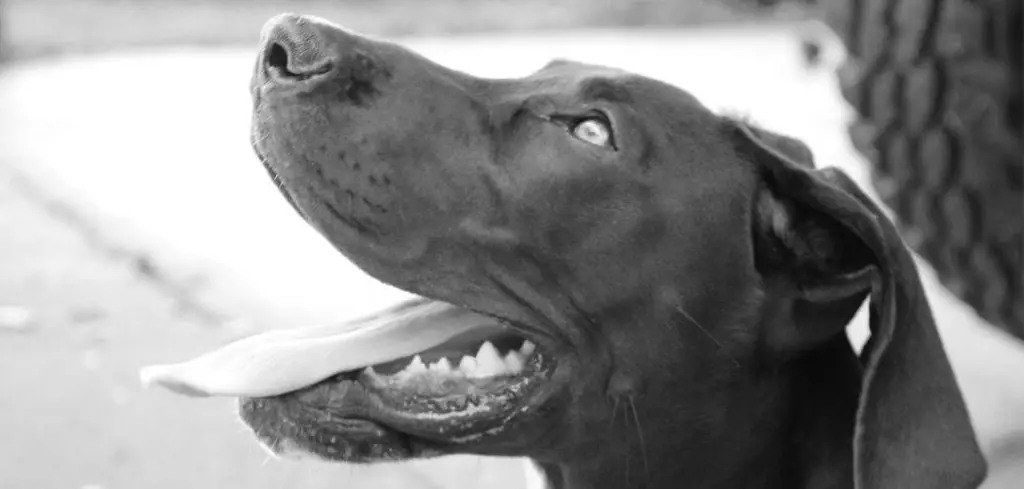When your dog suddenly starts drooling excessively and licking constantly, it can be alarming. These symptoms can signal anything from mild discomfort to a serious medical problem.
We outline the common causes of sudden excessive drooling and licking in dogs, what you can do at home, and when to seek veterinary help.
Sudden Excessive Drooling and Licking in Dogs — Why It Happens
Sudden changes in drooling and licking in dogs are not normal and can be signs of a variety of health issues. Common causes include dental problems, nausea, heatstroke, poisoning, oral injuries, and organ disease. Some may be harmless and temporary, while others require urgent veterinary care.

Common Causes of Sudden Excessive Drooling and Licking in Dogs
Dental Disease
Dental issues like gingivitis, abscesses, or broken teeth can cause pain, leading your dog to drool and lick to ease discomfort.
Bad breath, pawing at the mouth, or difficulty chewing may also be present. Untreated dental infections can spread and cause serious health risks.
Read more: My dog is drooling and lethargic (Here’s why)
Nausea and Gastrointestinal Upset
Nausea often triggers drooling and lip licking. Causes include eating spoiled food, infections, or pancreatitis.
Additional signs may be vomiting, loss of appetite, or lethargy.
Heatstroke
Overheating can result in drooling as the dog tries to cool down, with licking as a sign of stress.
Symptoms may include heavy panting, weakness, or collapse. This is an emergency.
Poisoning or Toxin Exposure
Toxic foods, plants, or chemicals can irritate the mouth or cause nausea, leading to drooling and licking.
Other warning signs include vomiting, tremors, or dilated pupils. Immediate veterinary help is vital.
Oral Injuries or Foreign Objects
Objects lodged in the mouth, such as sticks or splinters, can cause drooling and persistent licking.
You may see swelling or bleeding. Avoid trying to remove objects deep in the mouth yourself.
Liver or Kidney Disease
These conditions can cause toxin buildup in the body, leading to drooling and nausea. They may progress slowly but worsen suddenly. Signs include weight loss, increased thirst, and urination changes.
What to Do If Your Dog Is Drooling and Licking Excessively
Inspect your dog’s mouth for visible injuries or stuck objects, but avoid causing pain.
Remove any possible toxins from their environment. Keep them calm, cool, and hydrated.
If nausea is suspected, withhold food for several hours before offering a bland meal.
Track when symptoms started and any possible triggers for your vet.
When to Call or Visit Your Vet
Contact a vet immediately if symptoms include vomiting, breathing problems, weakness, seizures, or collapse.
These could indicate poisoning, heatstroke, or severe illness.
If signs persist, worsen, or recur, schedule a veterinary exam promptly.
Sudden oral behavior changes should always be checked, especially in older dogs or those with chronic health issues.
Read more: Dog Drooling, Shaking, and Lethargic (Here’s why)
Key Takeaway
Sudden excessive drooling and licking in dogs can stem from mild to life-threatening causes.
Quick action, careful monitoring, and knowing when to seek veterinary help are essential for your dog’s well-being.
